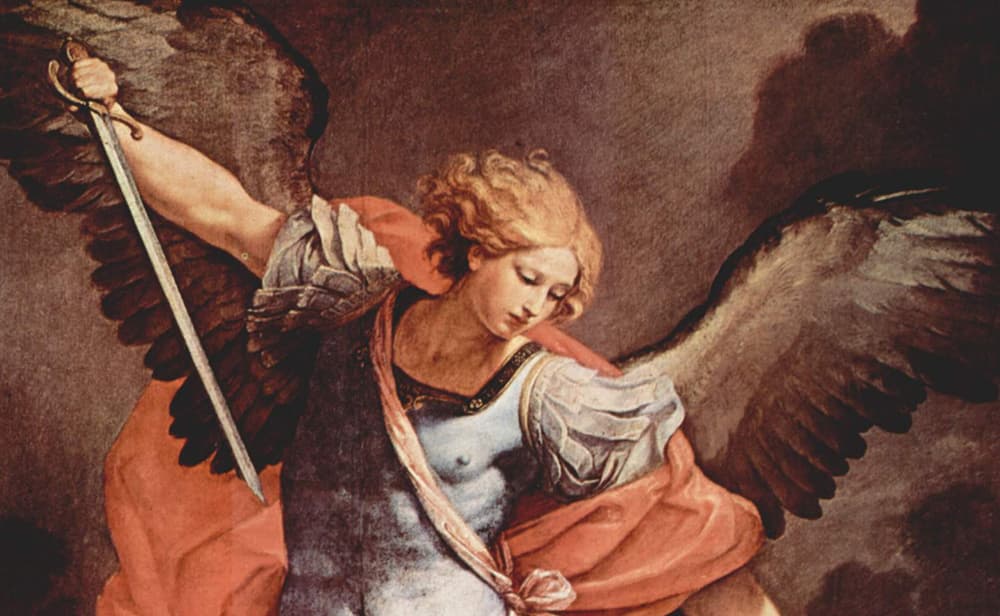SÃO PAULO – Over the past few years, thousands and thousands of Brazilians – not to mention Catholics from other countries as well – have been adhering to a devotion to Saint Michael which finds its peak during the so-called “Saint Michael’s Lent,” the 40-day period that predates the archangel’s feast day on Sept. 29.

The pre-dawn prayer of the rosary during Saint Michael’s Lent this year gathered around 4 million people on social media. Promoted by Frei Gilson Azevedo, one of the biggest Catholic stars in Brazil today, and Sister Kelly Patricia, also an influencer with millions of followers, the on-line encounters are promoted by the Carmelite-inspired Hesed Institute, founded in Brazil in 1997 by Patricia and Sister Maria Jane Madeleine.
The devotion to St. Michael the Archangel began with Saint Francis and has long had local importance in Italy and elsewhere. In today’s Brazil, however, it has become a mass phenomenon.
“The devotion to Saint Michael has always been present in the heart of Hesed Institute. Since its foundation, we have been observing Saint Michael’s Lent. At first, it was something internal for us. In 2018, we heard the calling to open it for the people of God on social media,” Patricia told Crux. From then on, “God’s grace overspread and touched many families.”
In 2020, during the COVID-19 pandemic, the movement of prayer formed the so-called “Saint Michael Army.” According to Patricia, in a time of fear and uncertainty, people found a path of strength and hope in their devotion to Saint Michael.
“Today, that army is present in 150 countries and draws millions of people that pray with us every day,” she added.
According to Bishop Devair da Fonseca of Piracicaba, São Paulo State – who has given a strong stimulus to the movement – a number of dioceses have already been consecrated to Saint Michael, something that has also boosted the devotion.
“We brought an image of him from Italy and learned about the devotion there,” he told Crux.
For him, the meaning of the devotion to Saint Michael is connected to the idea of reconquering faith, hope and the Church’s strength in an ever-more secularized world.
Patricia formulates it in similar fashion.
“We live in a time in which families are being attacked, faith is being ridiculed, and many people have lost a sense of life,” she said. “That’s the context in which Saint Michael’s figure becomes so up-to-date. He reminds us we’re not alone, that there’s a real spiritual struggle, and that the victory for those who remain faithful to Christ is certain.”
Patricia emphasized that the devotion to Saint Michael is deeply biblical and ecclesial. In the Book of Daniel, the archangel appears as the prince and the protector of the people of God. In Revelation, he is the one who defeats the dragon, which represents the devil.
“In the Church’s tradition, Saint Michael has always been recognized as a protector of the faith and a guardian of Christians in the face of spiritual battles,” she said.
The devotion has been growing in Brazil, according to her, because it corresponds to a “profound thirst of the human heart: the thirst of protection, of sense and of hope.”
In a politically polarized nation, the devotion to Saint Michael has also become caught up in that division. Given that it initally flourished in the environment of the Charismatic Catholic Renewal, which has been mostly identified with the right in Brazil over the past decades, many progressive Catholics have shunned it.
For Jesuit Father Bruno Franguelli, a PhD candidate in Social Sciences at the Pontifical Gregorian University in Rome, the initiative has been promoting positive things for many people, but there are some risks involved.
“Its goal is to pursue concrete conversion through prayer and spiritual discernment. With his charisma, Gilson has been awaking millions of people to pray in the morning,” Franguelli told Crux.
He worries, however, that the on-line prayers could be seen as “a mere show with celebrities, numbers and likes, producing devotional and intimate enthusiasm, but no ecclesial engagement that can produce charity and commitment to the poor.”
“Saint Michael is the great archangel that combats the forces of evil. There’s a risk of transferring that language to the military and ideological fields,” Franguelli said.
At the same time, the language of “reconquering” can also be dangerous, he added.
“It suggests the idea of ‘us against them,’” Franguelli said. “Pope Benedict XVI affirmed that the Church grows with attraction and testimony, not with proselytizing.”
On social media, one can see in the comments made by members of groups connected to the devotion that many participants repudiate political interpretations of the devotion. Some directly express their criticism of former President Jair Bolsonaro (2019-2022), suggesting there are devotees on the political left too, but in general, it seems the movement has been reaching people of all political tendencies.














